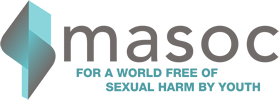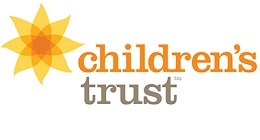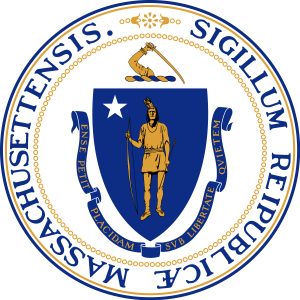Massachusetts Resources and Support for Preventing Child Sexual Abuse
For Families and Organizations Concerned about Youth Problematic Sexual Behaviors
This resource has been developed to help and support parents, caregivers, and youth-serving organizations who are looking to take an active role in the prevention of child sexual abuse, and particularly who want to prevent and respond to problematic sexual behaviors in children and youth.
Whether you are looking for yourself, for a child you love and care for, or a family you work with - help is available! Children and youth who are engaging in problematic sexual behaviors often require specialized support, and every child and youth deserves all the support they can get to help live a happy and harm-free life.
The needs of each child are as unique as the child themself, and families have choices about how they want to support their child. What is critical is that adults caring for children have help and support that is readily accessible, comprehensive, culturally competent, and inclusive. This provides the best chance for help that is lasting for both the child and for the adults caring for that child.
The resources below are highlighted to help families and organizations at any stage of preventing and responding to child sexual abuse - from the early stages of planning for safety in a family or organization to responding to sexual harm.
In addition to these resources, Stop It Now! operates a national confidential helpline dedicated to the prevention of child sexual abuse. Our staff are here to help you navigate children and youth sexual behaviors as well as how to find resources and professional support. Reach out to our helpline at 1.888.PREVENT, or visit our Get Immediate Help page to contact the helpline by email or chat.
There are caring and compassionate professionals who are trained to both support adults who are addressing problematic sexual behaviors in children and to help youth learn and practice safer sexual behaviors. These resources can help caring adults find a provider specializing in problematic sexual behaviors for their child. Parents and caregivers can also get a referral for a provider who specializes in working with youth from their child’s primary care provider, their health insurance carrier, or local mental health clinics.
Directory of Providers (MASOC)
This easy to use map can help adults locate providers across New England who specialize in working with youth struggling with problematic or abusive sexual behaviors.
Massachusetts Children's Alliance (MACA)
The Massachusetts state chapter of the National Children's Alliance is a vital resource for helping victims of child abuse. MACA provides training for professionals, community education, is an active advocate for legislative action, and provides support, assistance and resources to Children's Advocacy Centers across Massachusetts.
Sex Specific Treatment for Youth: Article (Child Molestation Research and Prevention Institute)
Find out how therapy specializing in problematic sexual behavior can help youth understand and learn safer behaviors with others, and help families navigate problematic sexual behaviors.
Find a Provider (NCSBY)
This tool from the National Center of the Sexual Behavior of Youth (NCSBY) provides a listing of providers across the country who specialize in working with youth struggling with problematic or abusive sexual behaviors.
Treatment Referrals - The Association for the Treatment and Prevention of Sexual Abuse (ATSA)
ATSA keeps an up-to-date directory of specialized providers throughout the country who specialize in working with youth and adults struggling with problematic, unsafe, or abusive sexual behaviors. To search, select your country, state, and city, then select “Yes” to Accepting Referrals. For a more broad search, select just your country and state.
Finding and Choosing Professional Treatment and Support: Stop It Now! Resource Guide
This resource guide includes articles to primarily help caregiving adults find support for themselves.
Navigating the reporting process can feel overwhelming, but there IS help through this process. We’re here to help families navigate this safely. These resources offer more information about the reporting process, what to expect if a report is made, and resources that are available through the reporting and investigating process.
Massachusetts Department of Children and Families (DCF)
DCF supports families through the reporting and investigation of child abuse throughout MA. To make a report about suspected child abuse or neglect, locate the area office in the town you live in or contact the Child-at-Risk Hotline at 800.792.5200. Their goal is to provide the resources and support families need to keep children safe in the home.
Office of the Child Advocate - MA Mandated Reporter Training
The Office of the Child Advocate provides a comprehensive online mandated reporter training for youth serving professionals in Massachusetts. This training provides an overview of the definitions, requirements and protections for those who are designated as a mandated reporter in MA. Those who complete the training will be required to take an exam, and will receive a certificate of completion.
Problematic Sexual Behaviors Flowchart
Never be afraid to ask for help. This (free, downloadable PDF) infographic was developed by the Problematic Sexual Behavior (PSB) Working Group of the Massachusetts Legislative Task Force on the Prevention of Child Sexual Abuse. It provides families and professionals working with children a visual of the process when a child or teen engaging in problematic sexual behavior is reported to the Department of Children and Families (DCF), and directions on how to access resources for a child or youth. The Task Force will develop a comprehensive listing of resources in Massachusetts for anyone seeking help.
CyberTipline
Funded by the National Center for Missing and Exploited Children (NCMEC), Cybertiptline is a national reporting hotline for concerns about online exploitation and sexual abuse. Reports can be made by calling 800.843.5678, or through their online reporting portal.
Reporting Resources
For more information, Stop It Now!’s reporting resources can help to answer questions that caring adults might have about navigating the reporting process, including when and how to file a report, as well as what to expect after a report is filed.
Here are some local resources specific to Massachusetts that are dedicated to helping parents/caregivers and youth serving organizations prevent child sexual abuse, and address problematic sexual behaviors in children and youth.
Safe Kids Thrive
Safe Kids Thrive provides tools and resources at no cost to Youth-Serving Organizations (YSOs) to keep children safe from sexual abuse. Their guidelines are based on best practices and recommendations from the Massachusetts Legislative Task Force on the Prevention of Child Sexual Abuse.
Children's Trust Massachusetts
The Children’s Trust partners with parents to help them with the tools and resources they need to ensure children grow up safe and healthy.
Massachusetts Children's Alliance (MACA)
The Massachusetts state chapter of the National Children's Alliance is a vital resource for helping victims of child abuse. MACA provides training for professionals, community education, is an active advocate for legislative action, and provides support, assistance and resources to Children's Advocacy Centers across Massachusetts.
MASOC (Massachusetts Society for a World Free of Sexual Harm by Youth)
Since 1986, MASOC has offered education and training to professionals in the field of youth problematic sexual behaviors, and has taken an active role in advocating to legislators on critical issues related to youth sexual behaviors.
Enough Abuse Campaign
A program associated with MassKids, the Enough Abuse Campaign was developed in Massachusetts to help prevent child sexual abuse. They provide education to parents and other caring adults, offer training to youth serving organizations, helps to organize local and state coalitions and to develop organizational policies for the prevention of child of child sexual abuse, and advocates for legislative changes to support the safety of children.
Family Resource Centers
The Massachusetts Family Resource Centers (FRCs) are in every county, and offers education, support, information, and referral services to support both families and communities.
These national resources are here to support youth and families with questions or concerns about youth’s problematic sexual behaviors and preventing sexual abuse. These are great places to get more information about children and youth’s sexual behaviors, and access tools to navigate supporting a youth with these concerns.
National Center on the Sexual Behavior of Youth (NCSBY)
Providing resources, education, and training to both parents and professionals, the mission of NCSBY is to “promote better lives through better choices”. Their Real World Examples demonstrate how other parents have navigated their child’s problematic sexual behaviors, and can help other parents learn how to navigate these concerns.
National Children's Alliance (NCA)
The NCA provides support, advocacy and national leadership for Children's Advocacy Centers across the country. They are also an active advocate for national and state legislation around child sexual abuse.
Raliance - Parent 2 Parent
Raliance’s Parent 2 Parent initiative provides parents and caregivers with resources and tools to address children and youth’s problematic sexual behaviors. Read real stories from other parents, access their toolkit, and learn more about healthy sexual development and issues impacting youth’s safe sexual behaviors, such as media, pornography, and sexting.
Stop It Now!
In addition to a national confidential helpline, Stop It Now! also offers comprehensive information and resources to adults and youth-serving organizations on the prevention of child sexual abuse throough our website. Check out some of our highlighted resources below:
-
Circles of Safety
- Circles of Safety (COS) is Stop It Now!’s signature training series. These trainings are designed for adults to prevent child sexual abuse in youth-serving environments such as schools, foster care programs, after-school programs, camps, and daycares. Trainings can be delivered as webinars, community workshops, and comprehensive multi-day organizational trainings, including trainer certifications.
-
FAQs - Children's Behaviors
- These FAQs help to answer common questions parents, caregivers, and other protective adults may have about children’s sexual behaviors, including harmful or abusive sexual behaviors.
-
Prevention Tools
- Our prevention tools are a great place to start learning more about warning signs, addressing concerning behaviors, and family safety planning.
-
Advice Columns
- Advice columns highlight real stories we’ve heard on our helpline. Parents and caregivers aren’t alone in navigating their children’s sexual behaviors. Check out how we responded to these parent’s questions and concerns:
-
Tip Sheets
- These tip sheets can help caring adults figure out how to have conversations with other parents or with their own child or teen about concerning, problematic, or abusive sexual behaviors. These conversations are important and can come from a place of care and understanding.
-
PARENTtalk Archives
- From 1998 to 2007, Stop It Now! published PARENTtalk, a publication by and for parents and caregivers of youth with sexual behavior problems. While these are older resources they offer practical information and hopeful perspectives for any adult looking for support in responding to sexually concerning behaviors in children or youth. To break the isolation that caregivers so often face PARENTtalk published personal stories from families who have generously shared their experiences as well as updates from some of the leading professionals in the field.
- Community-Based Approach to Healing Families
- Loving Them Both
- Support Groups for Parents
- When Abuse Hits Home
- Stronger and Wiser
- Parent to Parent: How You Can Help
- They've Moved Forward, Forever Changed Parents
- Breaking the Isolation: An Evening Just for Parents
- Loving Them for Telling the Truth: Healing the Victim and the Younger Offender
- A Family Sustained and Nourished with Openness
- Love & Communication Guide to Family Recovery
- A Family's Road to Healing
- A Message of Hope and Courage
- The Most Difficult Decision of My Life
A teen who feels engaged will be in a better position to make safe and healthy decisions, so it’s important to find ways to engage youth in ongoing discussions, and provide them with access to age-appropriate support and information. These resources are great tools to pass on to youth who might have questions about sexual development related topics or concerns about their own or a peer's sexual behaviors.
WhatsOK
Our partner site, WhatsOK, is a resource for youth and young adults ages 14-21 to learn more about safe sexual behaviors, and how to find help for any thoughts, feelings, or behaviors that feel concerning. Young people can reach out through email, chat, or text to get their questions answered, and get support in practicing safer sexual behaviors. These FAQs and Blogs can help get youth started in learning more.
Help Wanted
Self-help program for adolescents, youth and young adults who are sexually attracted to younger children. Course has videos, audio recordings and exercises on getting support, coping skills, healthy sexuality and living a safe life.
Healthy Sexual Development Resources
It’s important that children and youth have safe, accurate, and age-appropriate places to get information about healthy sexuality and safe sexual behaviors. Here are some tools created specifically for youth and young adults:
- Amaze: sex education through videos and other materials
- Planned Parenthood - For Teens: Comprehensive website with information about sex, sexuality, health, and wellness
- Loveisrespect: Offers information, support, and advocacy to young people between the ages of 13 and 26 who have questions or concerns about their romantic relationships.
- Scarleteen: Comprehensive, inclusive, and progressive sex and relationship information, education, and support for young people.
- Sex, etc.: Sex-ed information for teens.
- Advocates for Youth: Information and advocacy around youth sexual health and rights.
Cybersmile Foundation - Help Center
Find resources, support, and information on various cyber issues including revenge porn, doxxing, cyberbullying, gaming addictions, cyber abuse and harassment, swatting, and online security.



